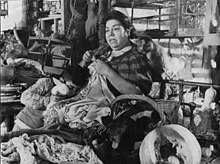North Wind is a 1937 Argentine film directed by Mario Soffici.

La vuelta al nido is a 1938 Argentine psychological drama film written and directed by Leopoldo Torres Ríos and starring José Gola and Amelia Bence.

Kilómetro 111 is a 1938 Argentine musical film drama directed by Mario Soffici. The film premiered in Buenos Aires.

Prisoners of the Earth, also known as Prisoners of the Land, is a 1939 Argentine drama film directed by Mario Soffici. The film premiered in Buenos Aires. The film is often cited as one of the greatest in the history of Argentine cinema, and established Soffici as a "social" filmmaker. It was awarded by the Municipality of Buenos Aires as the best film of the year, and the Silver Condor Award instituted by the Argentine Association of Film Critics.
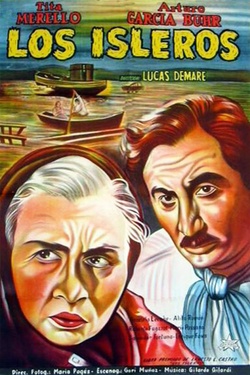
Los isleros is a 1951 Argentine film directed by Lucas Demare. It was entered into the 1951 Cannes Film Festival. It won the Silver Condor Award for Best Film.

The House of the Angel is a 1957 Argentine drama film directed by Leopoldo Torre Nilsson based the novel of the same name by his wife Beatriz Guido, who also co-wrote the screenplay.
La caída is a 1959 Argentine drama film directed by Leopoldo Torre Nilsson. It won the Silver Condor Award for Best Film was entered into the 9th Berlin International Film Festival.
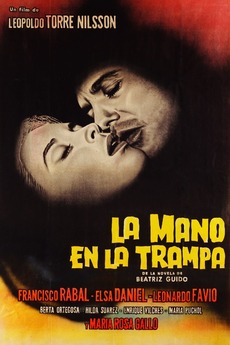
The Hand in the Trap is a 1961 Argentine film directed by Leopoldo Torre Nilsson and starring Francisco Rabal, Elsa Daniel and Leonardo Favio. It was entered into the 1961 Cannes Film Festival, where it won the FIPRESCI Prize.

Chronicle of a Boy Alone, also known as Chronicle of a Lonely Child, is a 1965 Argentine film directed by Leonardo Favio. It won the Silver Condor Award for Best Film.

Este es el romance del Aniceto y la Francisca, de cómo quedó trunco, comenzó la tristeza y unas pocas cosas más…, or simply El Romance del Aniceto y la Francisca, is a 1967 Argentine romantic drama film directed and written by Leonardo Favio, based on the short story El cenizo by Jorge Zuhair Jury, Favio's older brother. The film stars Federico Luppi, Elsa Daniel, María Vaner and Edgardo Suárez.

A King and His Movie is a 1986 Argentine comedy drama film, directed by Carlos Sorín, and written by Sorín and Jorge Goldenberg. The movie features Ulises Dumont and Julio Chávez, among others.
Brief Heaven is a 1969 Argentine film directed by David José Kohon. It was entered into the 6th Moscow International Film Festival where Ana María Picchio won the award for Best Actress.
Heartbreak Tango is a 1974 Argentine drama film, directed by Leopoldo Torre Nilsson.

Gatica, el mono is a 1993 Argentine drama film directed by Leonardo Favio. It is a biopic of Argentine boxer José María Gatica.

Tiempo de revancha is a 1981 Argentine political thriller film written and directed by Adolfo Aristarain and starring Federico Luppi, Julio De Grazia, Haydée Padilla, and Ulises Dumont. It was produced by Héctor Olivera and Luis O. Repetto. The music was composed by Emilio Kauderer. The film premiered in Argentina on July 30, 1981, and won 10 awards, including the Silver Condor for Best Film and Best Film in the Montréal World Film Festival.
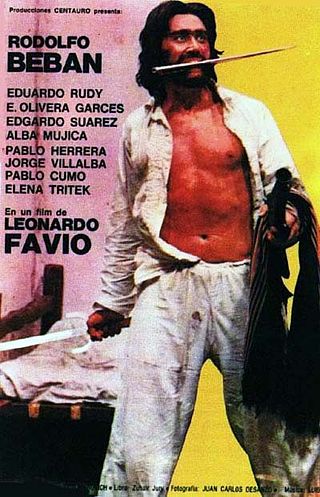
Juan Moreira is a 1973 Argentine dramatic historical film directed by Leonardo Favio and starring Rodolfo Bebán. It is based on the homonymous novel by Eduardo Gutiérrez, which narrates the life of the famous Argentine outlaw, gaucho and folk hero Juan Moreira.

Pajarito Gómez is a 1965 Argentine comedy film directed by Rodolfo Kuhn. It was entered into the 15th Berlin International Film Festival. It was also selected as the Argentine entry for the Best Foreign Language Film at the 38th Academy Awards, but was not accepted as a nominee. The film is a satire of the promotional machine behind the Argentine pop stars of the 1960s.

Tangos, the Exile of Gardel is an Argentine-French film released on 20 March 1986, directed by Fernando Solanas, starring Marie Laforêt, Miguel Ángel Solá and Philippe Leotard. The film was selected as the Argentine entry for the Best Foreign Language Film at the 59th Academy Awards, but was not accepted as a nominee.
Last Days of the Victim is a 1982 Argentine crime thriller film directed by Adolfo Aristarain and starring Federico Luppi. It was written by Aristarain and José Pablo Feinmann, and based on Feinmann's classic novel of the same name. The film was selected as the Argentine entry for the Best Foreign Language Film at the 55th Academy Awards, but was not accepted as a nominee.
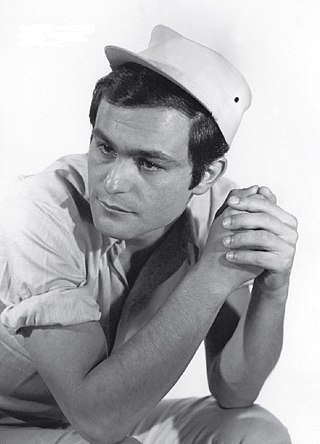
The 100 Greatest Films of Argentine Cinema, also known as the Survey of Argentine cinema, are a series of opinion polls carried out to establish a list of the greatest films of Argentine cinema of all time. The original survey was carried out by the Museo del Cine Pablo Ducrós Hicken in the years 1977, 1984, 1991 and 2000. In 2022, a new edition was held, organized by the film magazines La vida útil, Taipei and La tierra quema, with support from INCAA, the Mar del Plata International Film Festival, the FestiFreak International Film Festival of La Plata, the Casa de la Cultura of General Roca and the Museo del Cine Pablo Ducrós Hicken.
